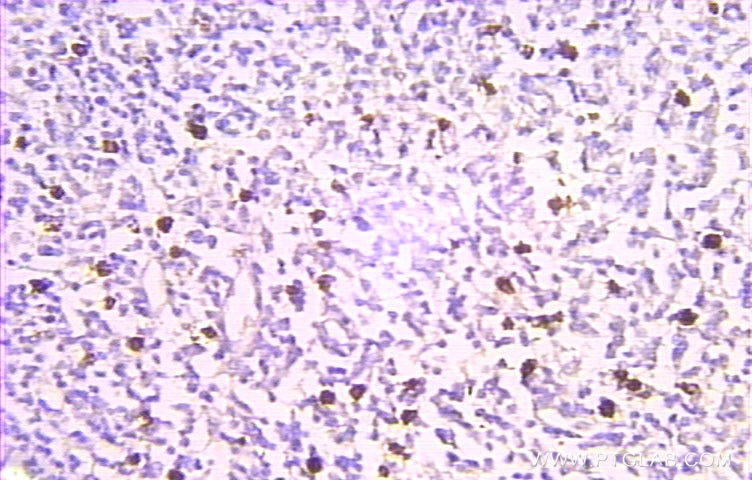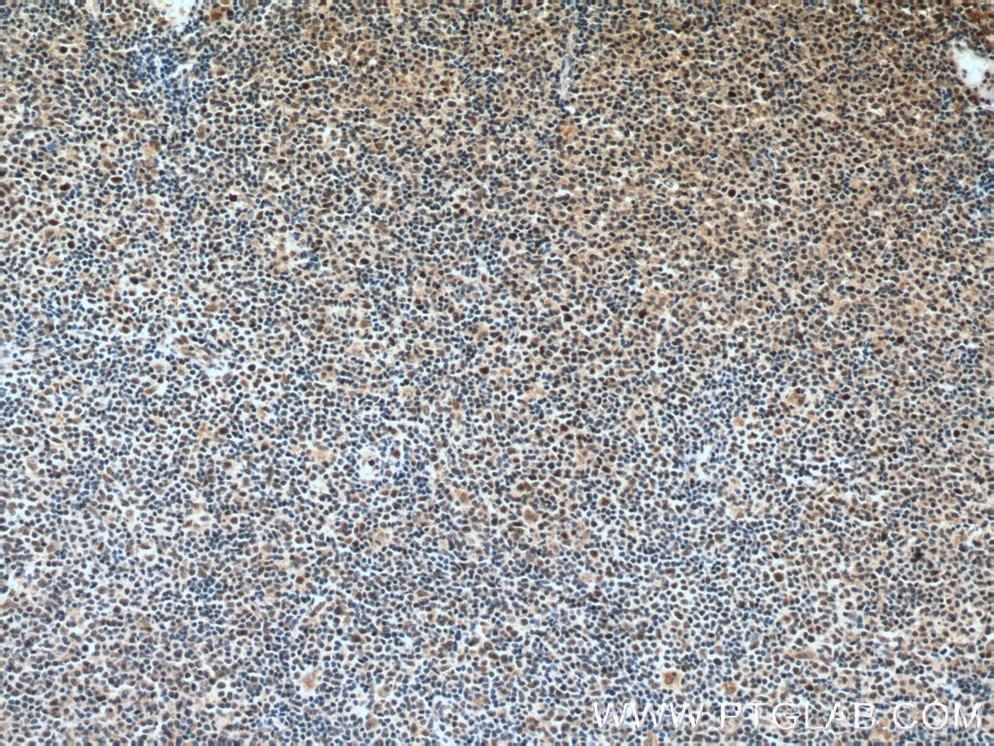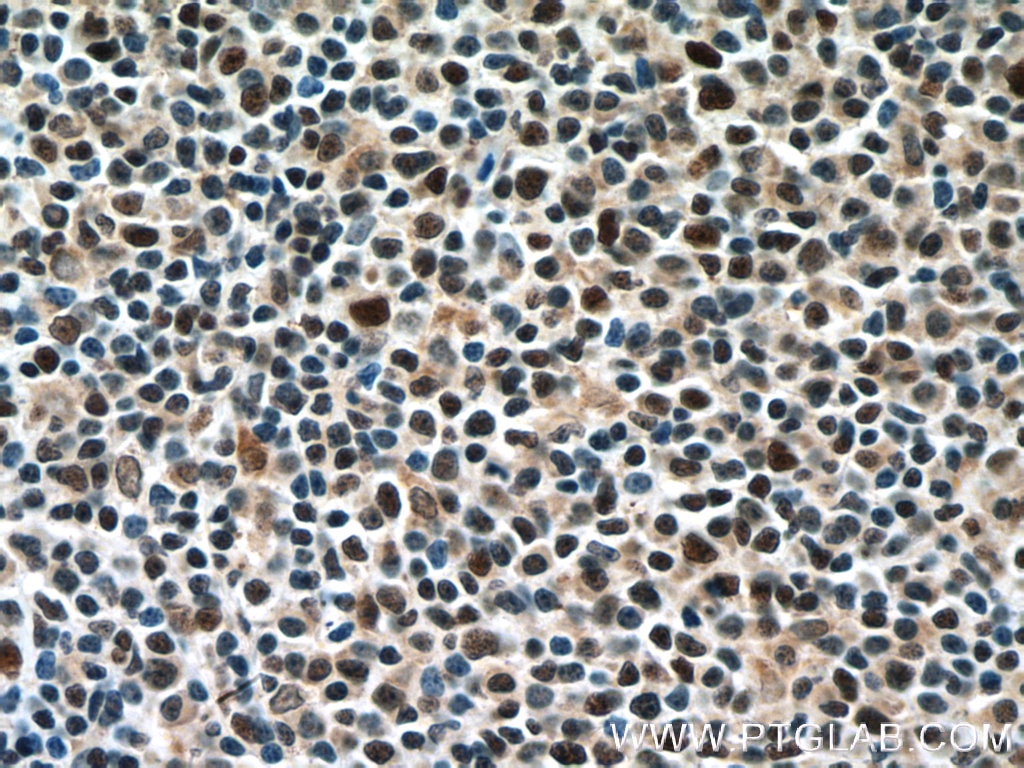Anticorps Polyclonal de lapin anti-Prothymosin Alpha
Prothymosin Alpha Polyclonal Antibody for IHC, ELISA
Hôte / Isotype
Lapin / IgG
Réactivité testée
Humain
Applications
IHC, ELISA
Conjugaison
Non conjugué
N° de cat : 10480-1-AP
Synonymes
Galerie de données de validation
Applications testées
| Résultats positifs en IHC | tissu de lymphome humain, il est suggéré de démasquer l'antigène avec un tampon de TE buffer pH 9.0; (*) À défaut, 'le démasquage de l'antigène peut être 'effectué avec un tampon citrate pH 6,0. |
Dilution recommandée
| Application | Dilution |
|---|---|
| Immunohistochimie (IHC) | IHC : 1:20-1:200 |
| It is recommended that this reagent should be titrated in each testing system to obtain optimal results. | |
| Sample-dependent, check data in validation data gallery | |
Informations sur le produit
10480-1-AP cible Prothymosin Alpha dans les applications de IHC, ELISA et montre une réactivité avec des échantillons Humain
| Réactivité | Humain |
| Hôte / Isotype | Lapin / IgG |
| Clonalité | Polyclonal |
| Type | Anticorps |
| Immunogène | Prothymosin Alpha Protéine recombinante Ag0732 |
| Nom complet | prothymosin, alpha |
| Masse moléculaire calculée | 12 kDa |
| Numéro d’acquisition GenBank | BC003510 |
| Symbole du gène | Prothymosin Alpha/PTMA |
| Identification du gène (NCBI) | 5757 |
| Conjugaison | Non conjugué |
| Forme | Liquide |
| Méthode de purification | Purification par affinité contre l'antigène |
| Tampon de stockage | PBS avec azoture de sodium à 0,02 % et glycérol à 50 % pH 7,3 |
| Conditions de stockage | Stocker à -20°C. Stable pendant un an après l'expédition. L'aliquotage n'est pas nécessaire pour le stockage à -20oC Les 20ul contiennent 0,1% de BSA. |
Informations générales
Prothymosin alpha (PTMA) is a nuclear protein possessing a number of cellular functions including cell survival. PTMA is identified to be localized in the nuclei of neurons, while it is found in both nuclei and cytoplasm in the astrocytes and microglia of adult brai. PTMA inhibits the neuronal necrosis induced by serum-free starvation or ischemia-reperfusion stress, which causes a rapid internalization of GLUT1/4, leading a decrease in glucose uptake and cellular ATP levels. Extensive research on PTMA showed that it is of clinical significance and potential medical use as they may serve as a molecular marker for cancer prognosis and/or as therapeutic agents for treating immunodeficiencies, autoimmune diseases and malignancies.
Protocole
| Product Specific Protocols | |
|---|---|
| IHC protocol for Prothymosin Alpha antibody 10480-1-AP | Download protocol |
| Standard Protocols | |
|---|---|
| Click here to view our Standard Protocols |




